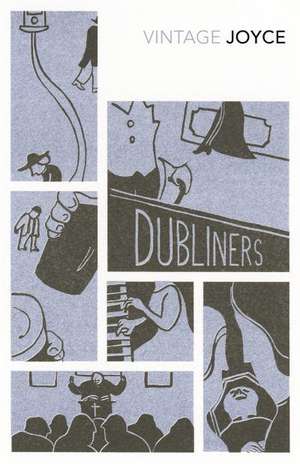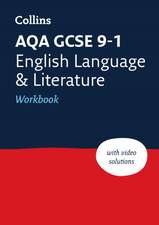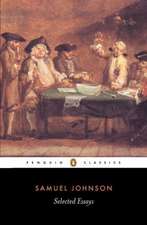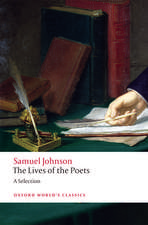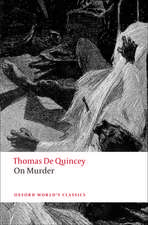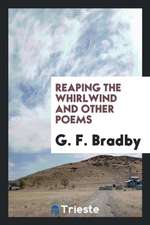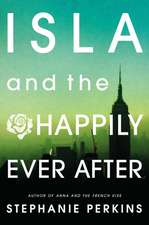Dubliners
Autor James Joyce Editat de Hans Walter Gabler Gableren Limba Engleză Paperback – 6 dec 2012
| Toate formatele și edițiile | Preț | Express |
|---|---|---|
| Paperback (97) | 25.69 lei 3-5 săpt. | +6.11 lei 7-13 zile |
| Harpercollins – noi 2021 | 25.69 lei 3-5 săpt. | +6.11 lei 7-13 zile |
| Penguin Random House Group – 31 dec 2000 | 34.23 lei 3-5 săpt. | |
| Dover Publications – 30 apr 1991 | 38.99 lei 3-5 săpt. | +10.42 lei 7-13 zile |
| Penguin Books – 25 iul 2012 | 42.45 lei 26-32 zile | +15.16 lei 7-13 zile |
| Alma Books COMMIS – 21 iun 2017 | 45.48 lei 3-5 săpt. | +10.08 lei 7-13 zile |
| Penguin Books – 4 apr 2012 | 46.85 lei 26-32 zile | +15.51 lei 7-13 zile |
| Quercus Books – 28 sep 2023 | 48.07 lei 3-5 săpt. | +23.66 lei 7-13 zile |
| UNION SQUARE & CO – dec 2024 | 48.42 lei 3-5 săpt. | +14.64 lei 7-13 zile |
| OUP OXFORD – 12 iun 2008 | 48.52 lei 10-16 zile | +18.29 lei 7-13 zile |
| CreateSpace Independent Publishing Platform – | 48.76 lei 3-5 săpt. | |
| CREATESPACE – | 48.99 lei 3-5 săpt. | |
| Penguin Books – 2 feb 2000 | 49.40 lei 26-32 zile | +19.77 lei 7-13 zile |
| CreateSpace Independent Publishing Platform – | 51.64 lei 3-5 săpt. | |
| – | 52.17 lei 3-5 săpt. | |
| CreateSpace Independent Publishing Platform – | 52.17 lei 3-5 săpt. | |
| CREATESPACE – 31 iul 2010 | 52.46 lei 3-5 săpt. | |
| Vintage Publishing – 6 dec 2012 | 52.92 lei 26-32 zile | +18.69 lei 7-13 zile |
| CREATESPACE – | 52.93 lei 3-5 săpt. | |
| CreateSpace Independent Publishing Platform – | 53.29 lei 3-5 săpt. | |
| West Margin Press – 12 aug 2020 | 54.63 lei 3-5 săpt. | +8.03 lei 7-13 zile |
| CREATESPACE – | 56.06 lei 3-5 săpt. | |
| Canongate Books – 5 dec 2019 | 57.00 lei 3-5 săpt. | +7.67 lei 7-13 zile |
| CREATESPACE – | 57.07 lei 3-5 săpt. | |
| – | 59.50 lei 3-5 săpt. | |
| KUPERARD (BRAVO LTD) – 23 ian 2013 | 62.09 lei 3-5 săpt. | |
| CreateSpace Independent Publishing Platform – | 62.59 lei 3-5 săpt. | |
| – | 63.05 lei 3-5 săpt. | |
| CREATESPACE – | 63.40 lei 3-5 săpt. | |
| Vintage Publishing – 31 mar 1993 | 63.50 lei 3-5 săpt. | |
| Penguin Books – 31 mai 1993 | 64.54 lei 3-5 săpt. | +20.90 lei 7-13 zile |
| – | 64.73 lei 3-5 săpt. | |
| – | 65.84 lei 3-5 săpt. | |
| – | 65.90 lei 3-5 săpt. | |
| – | 66.02 lei 3-5 săpt. | |
| CreateSpace Independent Publishing Platform – | 66.36 lei 3-5 săpt. | |
| CreateSpace Independent Publishing Platform – | 66.36 lei 3-5 săpt. | |
| – | 66.87 lei 3-5 săpt. | |
| – | 68.69 lei 3-5 săpt. | |
| – | 68.71 lei 3-5 săpt. | |
| CREATESPACE – | 69.79 lei 3-5 săpt. | |
| – | 70.25 lei 3-5 săpt. | |
| CreateSpace Independent Publishing Platform – | 70.31 lei 3-5 săpt. | |
| CreateSpace Independent Publishing Platform – | 73.70 lei 3-5 săpt. | |
| EMPIRE BOOKS – 31 oct 2011 | 74.52 lei 3-5 săpt. | |
| CREATESPACE – | 76.32 lei 3-5 săpt. | |
| – | 79.45 lei 3-5 săpt. | |
| Penguin Books – 6 aug 2014 | 80.93 lei 26-32 zile | +30.61 lei 7-13 zile |
| CreateSpace Independent Publishing Platform – 8 dec 2015 | 82.43 lei 3-5 săpt. | |
| CREATESPACE – | 98.40 lei 3-5 săpt. | |
| G&D MEDIA – 14 noi 2023 | 99.14 lei 3-5 săpt. | |
| CREATESPACE – | 110.93 lei 3-5 săpt. | |
| – | 130.70 lei 3-5 săpt. | |
| CreateSpace Independent Publishing Platform – | 142.43 lei 3-5 săpt. | |
| BROADVIEW PR – 30 iul 2016 | 142.71 lei 3-5 săpt. | +26.94 lei 7-13 zile |
| CREATESPACE – | 143.73 lei 3-5 săpt. | |
| Alpha Editions – 21 oct 2020 | 154.93 lei 3-5 săpt. | |
| Penguin Books – 31 iul 1996 | 179.09 lei 3-5 săpt. | |
| Chump Change – 26 sep 2017 | 52.82 lei 6-8 săpt. | |
| CREATESPACE – | 64.88 lei 6-8 săpt. | |
| Digireads.com – apr 2019 | 67.21 lei 6-8 săpt. | |
| – | 72.04 lei 6-8 săpt. | |
| Digireads.com – 20 mai 2016 | 72.79 lei 38-44 zile | |
| – | 76.61 lei 6-8 săpt. | |
| LIGHTNING SOURCE INC – 29 oct 2018 | 76.95 lei 17-23 zile | |
| LIGHTNING SOURCE INC – 11 oct 2018 | 76.95 lei 17-23 zile | |
| SMK Books – 21 mar 2012 | 77.10 lei 6-8 săpt. | |
| – | 78.19 lei 6-8 săpt. | |
| SC Active Business Development SRL – 5 apr 2017 | 79.62 lei 38-44 zile | |
| Clearlight – 20 mai 2020 | 80.45 lei 6-8 săpt. | |
| Clearlight – 27 iul 2013 | 80.45 lei 6-8 săpt. | |
| Lits – 31 iul 2010 | 81.31 lei 6-8 săpt. | |
| Lector House – 6 mai 2019 | 81.75 lei 6-8 săpt. | |
| Blurb – 7 feb 2019 | 86.76 lei 38-44 zile | |
| Echo Library – | 90.73 lei 38-44 zile | |
| CreateSpace Independent Publishing Platform – | 91.30 lei 6-8 săpt. | |
| Public Park Publishing – 9 ian 2020 | 92.56 lei 6-8 săpt. | |
| – | 93.02 lei 6-8 săpt. | |
| BLURB INC – 8 ian 2019 | 93.29 lei 17-23 zile | |
| Public Public Books – 17 iun 2020 | 93.32 lei 6-8 săpt. | |
| USA Public Domain Books – 17 iun 2020 | 93.32 lei 6-8 săpt. | |
| Toronto Public Domain Publishing – 18 iun 2020 | 93.32 lei 6-8 săpt. | |
| Susan Publishing Ltd – 17 iun 2020 | 93.32 lei 6-8 săpt. | |
| Public Publishing – 17 iun 2020 | 93.32 lei 6-8 săpt. | |
| Texas Public Domain – 17 iun 2020 | 93.32 lei 6-8 săpt. | |
| Camel Publishing House – 17 iun 2020 | 93.32 lei 6-8 săpt. | |
| Barclays Public Books – 18 iun 2020 | 93.32 lei 6-8 săpt. | |
| Yorkshire Public Books – 18 iun 2020 | 93.37 lei 6-8 săpt. | |
| Mary Publishing Company – 18 iun 2020 | 93.37 lei 6-8 săpt. | |
| 1st World Publishing – 21 iul 2013 | 96.38 lei 6-8 săpt. | |
| CreateSpace Independent Publishing Platform – | 96.93 lei 6-8 săpt. | |
| Delhi Open Books – 30 iun 2020 | 99.05 lei 6-8 săpt. | |
| Bottom of the Hill Publishing – 31 dec 2014 | 104.96 lei 6-8 săpt. | |
| Adhyaya Books – 2 mai 2022 | 112.21 lei 6-8 săpt. | |
| Urban Romantics – 9 sep 2012 | 121.18 lei 38-44 zile | |
| Simon & Brown – 28 feb 2011 | 129.66 lei 38-44 zile | |
| LIGHTNING SOURCE INC – 26 mai 2018 | 180.67 lei 17-23 zile | |
| TREDITION CLASSICS – 31 oct 2012 | 220.63 lei 6-8 săpt. | |
| Hardback (14) | 51.60 lei 3-5 săpt. | +11.65 lei 7-13 zile |
| Flame Tree Publishing – 14 ian 2020 | 51.60 lei 3-5 săpt. | +11.65 lei 7-13 zile |
| EVERYMAN – 26 sep 1991 | 83.58 lei 26-32 zile | +35.04 lei 7-13 zile |
| TREDITION CLASSICS – 30 noi 2012 | 147.92 lei 17-23 zile | +12.81 lei 7-13 zile |
| Everyman's Library – 31 oct 1991 | 154.86 lei 3-5 săpt. | |
| 12th Media Services – 17 mar 2018 | 108.82 lei 6-8 săpt. | |
| Chump Change – iun 1914 | 118.93 lei 6-8 săpt. | |
| Public Park Publishing – 16 ian 2020 | 127.51 lei 6-8 săpt. | |
| – | 175.75 lei 6-8 săpt. | |
| SMK Books – 3 apr 2018 | 178.05 lei 6-8 săpt. | |
| Bibliotech Press – 12 iul 2023 | 190.47 lei 6-8 săpt. | |
| 1st World Publishing – 21 iul 2013 | 190.71 lei 6-8 săpt. | |
| Mjp Publishers – 31 mai 2023 | 193.20 lei 6-8 săpt. | |
| Simon & Brown – 15 noi 2018 | 204.73 lei 38-44 zile | |
| Alpha Editions – 19 oct 2020 | 227.51 lei 6-8 săpt. |
Preț: 52.92 lei
Preț vechi: 63.29 lei
-16% Nou
10.13€ • 10.60$ • 8.38£
Carte disponibilă
Livrare economică 20-26 martie
Livrare express 01-07 martie pentru 28.68 lei
Specificații
ISBN-10: 0099573148
Pagini: 272
Dimensiuni: 128 x 198 x 22 mm
Greutate: 0.2 kg
Editura: Vintage Publishing
Notă biografică
James Joyce was born on 2 February 1882 in Dublin. He studied modern languages at University College, Dublin. After graduating, Joyce moved to Paris for a brief period in 1902. In 1904 Joyce met Nora Barnacle, with whom he would spend the rest of his life and they moved to Europe and settled in Trieste where Joyce worked as a teacher. His first published work was a book of poems called Chamber Music (1907). This was followed by Dubliners (1914), A Portrait of the Artist as a Young Man (1916) and the play Exiles (1918). In 1915 the First World War forced Joyce and Nora and their two children to move to Zürich. Joyce's most famous novel, Ulysses, was published in Paris in 1922. In the same year he started work on his last great book, Finnegan's Wake (1939). James Joyce died in Zürich on 13 January 1941.
John Banville (Introducer)
John Banville was born in Wexford, Ireland in 1945. His first book, Long Lankin, was published in 1970. His other books are Nightspawn; Birchwood; Doctor Copernicus, which won the James Tait Black Memorial Prize in 1976; Kepler, which was awarded the Guardian Fiction Prize in 1981; The Newton Letter, which was filmed for Channel 4; Mefisto and The Book of Evidence, which was shortlisted for the 1989 Booker Prize and won the 1989 Guinness Peat Aviation Award. John Banville is literary editor of the Irish Times and lives in London with his wife and two sons.
Textul de pe ultima copertă
Although James Joyce began these stories of Dublin life in 1904, when he was 22, and had completed them by the end of 1907, they remained unpublished until 1914 victims of Edwardian squeamishness. Their vivid, tightly focused observations of the life of Dublin's poorer classes, their unconventional themes, coarse language, and mention of actual people and places made publishers of the day reluctant to undertake sponsorship.
Today, however, the stories are admired for their intense and masterly dissection of "dear dirty Dublin," and for the economy and grace with which Joyce invested this youthful fiction. From "The Sisters," the first story, illuminating a young boy's initial encounter with death, through the final piece, "The Dead," considered a masterpiece of the form, these tales represent, as Joyce himself explained, a chapter in the moral history of Ireland that would give the Irish "one good look at themselves." But in the end the stories are not just about the Irish; they represent moments of revelation common to all people.
Now readers can enjoy all 15 stories in this inexpensive collection, which also functions as an excellent, accessible introduction to the work of one of the 20th century's most influential writers. "Dubliners" is reprinted here, complete and unabridged, from a standard edition."
Cuprins
Chronology
I. The Text
Dubliners:
The Sisters
An Encounter
Araby
Eveline
After the Race
Two Gallants
The Boarding House
A Little Cloud
Counterparts
Clay
A Painful Case
Ivy Day in the Committee Room
A Mother
Grace
The Dead
A Note on the Text
II. The Author and His Work
Facsimile Pages from "A Painful Case"
The Composition and Revision of the Stories
Epiphanies and Epicleti
The Evidence of the Letters
III. Criticism
Editors' Introduction to Criticism Section
FRANK O'CONNOR, Work in Progress
HARRY STONE, "Araby" and the Writings of James Joyce
A. WALTON LITZ, "Two Gallants"
ROBERT SCHOLES, "Counterparts" and the Method of Dubliners
JANE E. MILLER, "'O, she's a nice lady!'": A Rereading of "A Mother"
RICHARD ELLMANN, The Backgrounds of "The Dead"
ALLEN TATE, "The Dead"
KENNETH BURKE, "Stages" in "The Dead"
C. C. LOOMIS, JR., Structure and Sympathy in Joyce's "The Dead"
BRUCE AVERY, Distant Music: Sound and the Dialogics of Satire in "The Dead"
MICHAEL LEVENSON, Living History in "The Dead"
Topics for Discussion and Papers
Selected Bibliography
Notes to the Stories
Caracteristici
Recenzii
“Joyce renews our apprehension of reality, strengthens our sympathy with our fellow creatures, and leaves us in awe before the mystery of created things.” –Atlantic Monthly
“It is in the prose of Dubliners that we first hear the authentic rhythms of Joyce the poet…Dubliners is, in a very real sense, the foundation of Joyce’s art. In shaping its stories, he developed that mastery of naturalistic detail and symbolic design which is the hallmark of his mature fiction.” –Robert Scholes and A. Walton Litz, authors of Dubliners: Text and Criticism
With an Introduction by John Kelly
From the Hardcover edition.
Extras
There was no hope for him this time: it was the third stroke. Night after night I had passed the house (it was vacation time) and studied the lighted square of window: and night after night I had found it lighted in the same way, faintly and evenly. If he was dead, I thought, I would see the reflection of candles on the darkened blind for I knew that two candles must be set at the head of a corpse. He had often said to me: "I am not long for this world," and I had thought his words idle. Now I knew they were true. Every night as I gazed up at the window I said softly to myself the word paralysis. It had always sounded strangely in my ears, like the word gnomon in the Euclid and the word simony in the Catechism. But now it sounded to me like the name of some maleficent and sinful being. It filled me with fear, and yet I longed to be nearer to it and to look upon its deadly work.
Old Cotter was sitting at the fire, smoking, when I came downstairs to supper. While my aunt was ladling out my stirabout he said, as if returning to some former remark of his: "No, I wouldn't say he was exactly . . . but there was something queer . . . there was something uncanny about him. I'll tell you my opinion. . . ." He began to puff at his pipe, no doubt arranging his opinion in his mind. Tiresome old fool! When we knew him first he used to be rather interesting, talking of faints and worms; but I soon grew tired of him and his endless stories about the distillery.
"I have my own theory about it," he said. "I think it was one of those . . . peculiar cases. . . . But it's hard to say. . . ." He began to puff again at his pipe without giving us his theory. My uncle saw me staring and said to me: "Well, so your old friend is gone, you'll be sorry to hear."
"Who?" said I.
"Father Flynn."
"Is he dead?"
"Mr. Cotter here has just told us. He was passing by the house."
I knew that I was under observation so I continued eating as if the news had not interested me. My uncle explained to old Cotter.
"The youngster and he were great friends. The old chap taught him a great deal, mind you; and they say he had a great wish for him."
"God have mercy on his soul," said my aunt piously.
Old Cotter looked at me for a while. I felt that his little beady black eyes were examining me but I would not satisfy him by looking up from my plate. He returned to his pipe and finally spat rudely into the grate.
"I wouldn't like children of mine," he said, "to have too much to say to a man like that."
"How do you mean, Mr. Cotter?" asked my aunt.
"What I mean is," said old Cotter, "it's bad for children. My idea is: let a young lad run about and play with young lads of his own age and not be . . . Am I right, Jack?"
"That's my principle, too," said my uncle. "Let him learn to box his corner. That's what I'm always saying to that Rosicrucian there: take exercise. Why, when I was a nipper every morning of my life I had a cold bath, winter and summer. And that's what stands to me now. Education is all very fine and large. . . . Mr. Cotter
might take a pick of that leg of mutton," he added to my aunt.
"No, no, not for me," said old Cotter.
My aunt brought the dish from the safe and put it on the table. "But why do you think it's not good for children, Mr. Cotter?" she asked.
"It's bad for children," said old Cotter, "because their minds are so impressionable. When children see things like that, you know, it has an effect..."
I crammed my mouth with stirabout for fear I might give utterance to my anger. Tiresome old red-nosed imbecile!
It was late when I fell asleep. Though I was angry with old Cotter for alluding to me as a child, I puzzled my head to extract meaning from his unfinished sentences. In the dark of my room I imagined that I saw again the heavy grey face of the paralytic. I drew the blankets over my head and tried to think of Christmas. But the grey face still followed me. It murmured; and I understood that it desired to confess something. I felt my soul receding into some pleasant and vicious region; and there again I found it waiting for me. It began to confess to me in a murmuring voice and I wondered why it smiled continually and why the lips were so moist with spittle. But then I remembered that it had died of paralysis and I felt that I too was smiling feebly as if to absolve the simoniac of his sin.
The next morning after breakfast I went down to look at the little house in Great Britain Street. It was an unassuming shop, registered under the vague name of Drapery. The drapery consisted mainly of children's bootees and umbrellas; and on ordinary days a notice used to hang in the window, saying: Umbrellas Re-covered. No notice was visible now for the shutters were up. A crape bouquet was tied to the door-knocker with ribbon. Two poor women and a telegram boy were reading the card pinned on the crape. I also approached and read:
July 1st, 1895
The Rev. James Flynn (formerly of S. Catherine's Church,
Meath Street), aged sixty-five years.
R. I. P.
The reading of the card persuaded me that he was dead and I was disturbed to find myself at check. Had he not been dead I would have gone into the little dark room behind the shop to find him sitting in his arm-chair by the fire, nearly smothered in his great-coat. Perhaps my aunt would have given me a packet of High Toast for him and this present would have roused him from his stupefied doze. It was always I who emptied the packet into his black snuff-box for his hands trembled too much to allow him to do this without spilling half the snuff about the floor. Even as he raised his large trembling hand to his nose little clouds of smoke dribbled through his fingers over the front of his coat. It may have been these constant showers of snuff which gave his ancient priestly garments their green faded look for the red handkerchief, blackened, as it always was, with the snuff-stains of a week, with which he tried to brush away the fallen grains, was quite inefficacious.
I wished to go in and look at him but I had not the courage to knock. I walked away slowly along the sunny side of the street, reading all the theatrical advertisements in the shop-windows as I went. I found it strange that neither I nor the day seemed in a mourning mood and I felt even annoyed at discovering in myself a sensation of freedom as if I had been freed from something by his death. I wondered at this for, as my uncle had said the night before, he had taught me a great deal. He had studied in the Irish college in Rome and he had taught me to pronounce Latin properly. He had told me stories about the catacombs and about Napoleon Bonaparte, and he had explained to me the meaning of the different ceremonies of the Mass and of the different vestments worn by the priest. Sometimes he had amused himself by putting difficult questions to me, asking me what one should do in certain circumstances or whether such and such sins were mortal or venial or only imperfections. His questions showed me how complex and mysterious were certain institutions of the Church which I had always regarded as the simplest acts. The duties of the priest towards the Eucharist and towards the secrecy of the confessional seemed so grave to me that I wondered how anybody had ever found in himself the courage to undertake them; and I was not surprised when he told me that the fathers of the Church had written books as thick as the Post Office Directory and as closely printed as the law notices in the newspaper, elucidating all these intricate questions. Often when I thought of this I could make no answer or only a very foolish and halting one upon which he used to smile and nod his head twice or thrice. Sometimes he used to put me through the responses of the Mass which he had made me learn by heart; and, as I pattered, he used to smile pensively and nod his head, now and then pushing huge pinches of snuff up each nostril alternately. When he smiled he used to uncover his big discoloured teeth and let his tongue lie upon his lower lip--a habit which had made me feel uneasy in the beginning of our acquaintance before I knew him well.
As I walked along in the sun I remembered old Cotter's words and tried to remember what had happened afterwards in the dream. I remembered that I had noticed long velvet curtains and a swinging lamp of antique fashion. I felt that I had been very far away, in some land where the customs were strange--in Persia, I thought. . . . But I could not remember the end of the dream.
In the evening my aunt took me with her to visit the house of mourning. It was after sunset; but the window-panes of the houses that looked to the west reflected the tawny gold of a great bank of clouds. Nannie received us in the hall; and, as it would have been unseemly to have shouted at her, my aunt shook hands with her for all. The old woman pointed upwards interrogatively and, on my aunt's nodding, proceeded to toil up the narrow staircase before us, her bowed head being scarcely above the level of the banister-rail. At the first landing she stopped and beckoned us forward encouragingly towards the open door of the dead-room. My aunt went in and the old woman, seeing that I hesitated to enter, began to beckon to me again repeatedly with her hand.
I went in on tiptoe. The room through the lace end of the blind was suffused with dusky golden light amid which the candles looked like pale thin flames. He had been coffined. Nannie gave the lead and we three knelt down at the foot of the bed. I pretended to pray but I could not gather my thoughts because the old woman's mutterings distracted me. I noticed how clumsily her skirt was hooked at the back and how the heels of her cloth boots were trodden down all to one side. The fancy came to me that the old priest was smiling as he lay there in his coffin.
But no. When we rose and went up to the head of the bed I saw that he was not smiling. There he lay, solemn and copious, vested as for the altar, his large hands loosely retaining a chalice. His face was very truculent, grey and massive, with black cavernous nostrils and circled by a scanty white fur. There was a heavy odour in the room--the flowers.
We crossed ourselves and came away. In the little room downstairs we found Eliza seated in his arm-chair in state. I groped my way towards my usual chair in the corner while Nannie went to the sideboard and brought out a decanter of sherry and some wine-glasses. She set these on the table and invited us to take a little glass of wine. Then, at her sister's bidding, she filled out the sherry into the glasses and passed them to us. She pressed me to take some cream crackers also but I declined because I thought I would make too much noise eating them. She seemed to be somewhat disappointed at my refusal and went over quietly to the sofa where she sat down behind her sister. No one spoke: we all gazed at the empty fireplace.
My aunt waited until Eliza sighed and then said: "Ah, well, he's gone to a better world."
Eliza sighed again and bowed her head in assent. My aunt fingered the stem of her wine-glass before sipping a little. "Did he . . . peacefully?" she asked.
"Oh, quite peacefully, ma'am," said Eliza. "You couldn't tell when the breath went out of him. He had a beautiful death, God be praised."
"And everything . . . ?"
"Father O'Rourke was in with him a Tuesday and anointed him and prepared him and all."
"He knew then?"
"He was quite resigned."
"He looks quite resigned," said my aunt.
"That's what the woman we had in to wash him said. She said he just looked as if he was asleep, he looked that peaceful and resigned. No one would think he'd make such a beautiful corpse."
"Yes, indeed," said my aunt.
She sipped a little more from her glass and said:
"Well, Miss Flynn, at any rate it must be a great comfort for you to know that you did all you could for him. You were both very kind to him, I must say."
Eliza smoothed her dress over her knees.
"Ah, poor James!" she said. "God knows we done all we could, as poor as we are--we wouldn't see him want anything while he was in it."
Nannie had leaned her head against the sofa-pillow and seemed about to fall asleep.
"There's poor Nannie," said Eliza, looking at her, "she's wore out. All the work we had, she and me, getting in the woman to wash him and then laying him out and then the coffin and then arranging about the Mass in the chapel. Only for Father O'Rourke I don't know what we'd done at all. It was him brought us all them flowers and them two candlesticks out of the chapel and wrote out the notice for the Freeman's General and took charge of all the papers for the cemetery and poor James's insurance."
"Wasn't that gooda of him?" said my aunt.
Eliza closed her eyes and shook her head slowly. "Ah, there's no friends like the old friends," she said, "when all is said and done, no friends that a body can trust."
"Indeed, that's true," said my aunt. "And I'm sure now that he's gone to his eternal reward he won't forget you and all your kindness to him."
"Ah, poor James!" said Eliza. "He was no great trouble to us. You wouldn't hear him in the house any more than now. Still, I know he's gone and all to that. . . ."
"It's when it's all over that you'll miss him," said my aunt.
"I know that," said Eliza. "I won't be bringing him in his cup of beef-tea any more, nor you, ma'am, sending him his snuff. Ah, poor James!"
She stopped, as if she were communing with the past, and then said shrewdly:
"Mind you, I noticed there was something queer coming over him latterly. Whenever I'd bring in his soup to him there I'd find him with his breviary fallen to the floor, lying back in the chair and his mouth open."
From the Paperback edition.
